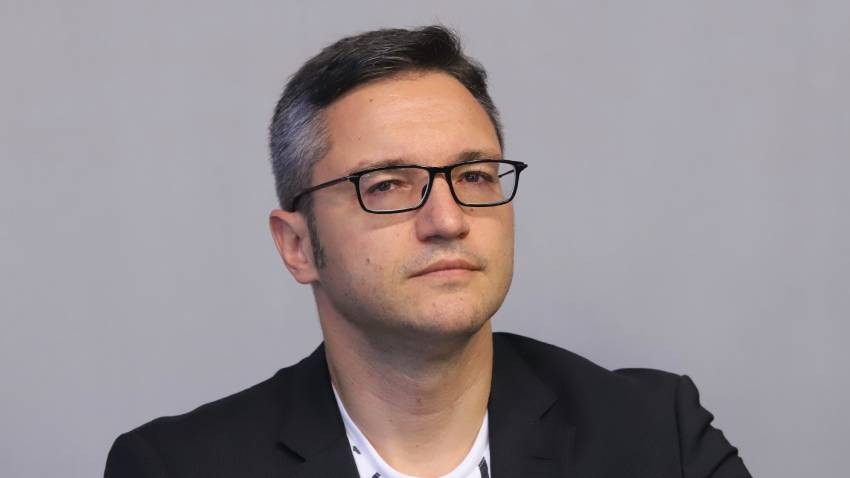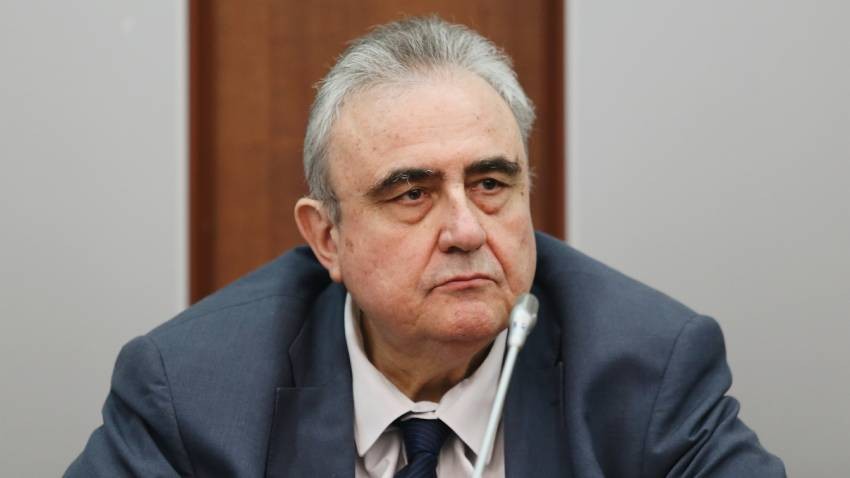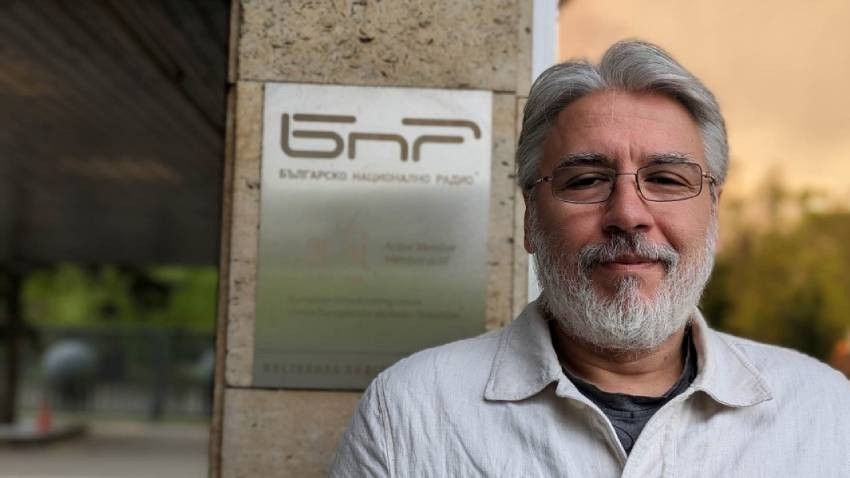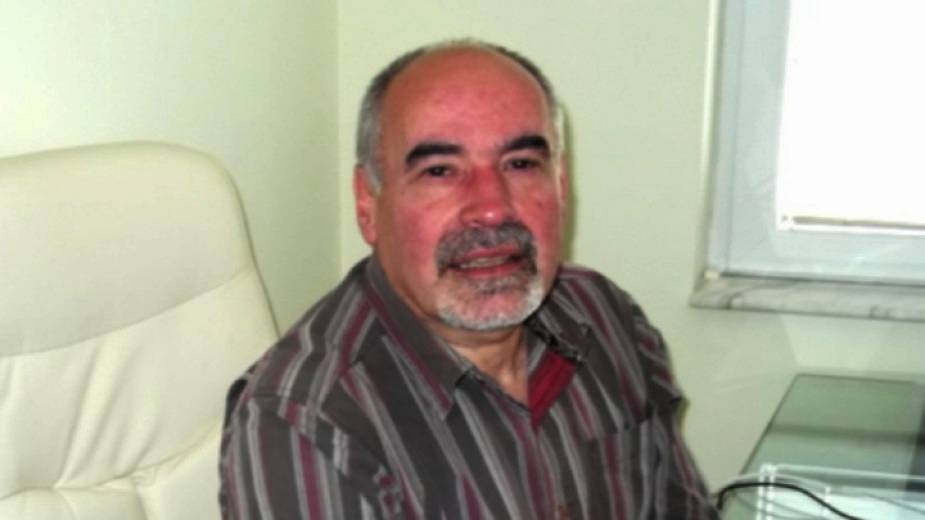At an extraordinary sitting at 1 PM today, the National Assembly is to vote the structure and the composition of the prospective Denkov-Gabriel cabinet, formed on the second exploratory mandate within the current 49th parliament. The stakes are high because the crux of the matter is: will the political parties be able to take the country’s governance back to the National Assembly, as the constitution stipulates, or will the development of Bulgaria continue to be in the hands of the caretaker cabinet, formed by President Rumen Radev? Many analysts describe the accord reached between the first two political formations in parliament – GERB/SDS and We Continue the Change/Democratic Bulgaria (PP/DB) - as a “marriage of convenience” between two mutually exclusive political entities. And add that with the way they cast their votes in the April election, the Bulgarian people lent credence to this political turn of events.
The first two political formations have a majority in parliament and together, will be able to approve the cabinet they have formed. The Movement for Rights and Freedoms, which has through the years played a successful balancing act in Bulgaria’s parliament, have not given a definitive answer to the question which way their votes are going to go. Two of the other parties represented in parliament – the Bulgarian Socialist Party (BSP) and Vazrazhdane are adamant they will not give their support. In a post on Facebook, Vazrazhdane leader Kostadin Kostadinov called on his supporters to a protest in front of parliament building to show they do not want “Bulgaria to be governed by a cabinet of espionage and betrayal”.
“This is a government created by force of outside pressure and inside necessity,” comments Kristian Vigenin, MP from the Bulgarian Socialist Party. “A government that aims, primarily to protect GERB leader Boyko Borissov from criminal prosecution, and to put We Continue the Change back in power – a party that failed with the previous cabinet precisely on the issues that are now being pushed as the reason to have a cabinet at all.”
Despite the criticism, Kristian Vigenin says he expects the prospective regular government and a functioning parliament to contribute positively to “reinstating constitutional order in the country… to a certain degree”.
There are a number of challenges the new cabinet ministers are going to have to face, though there is one top priority:
“This government is called upon to put, if not an end, at least to put the brakes on the development of the institutional crisis,” comments political analyst Ognyan Minchev. “Unless the crisis is overcome by making decisions urgently, including by a majority required for putting through constitutional changes, we could see a transition, and not just from a political to an institutional crisis, but from an institutional to a constitutional crisis, and that would have dramatic consequences for the democratic future of Bulgaria.”
Political analyst says a delay is possible with two of the future cabinet’s priorities – the accession of Bulgaria to the Schengen area and to the Eurozone. In his words, PP/DB and GERB/SDS will not be able to justify “the enormous political cost they are paying for this coalition”.

“That is the most important thing to them, and if it doesn’t happen by the end of the year, if one of the two formations shows a poor result at the local elections (in the autumn – editorial note), that could lead to a dissolution of the coalition as such because it would become a major lability for both formations.”
Rosen Stoyanov, professor of political communications, says the future regular cabinet ought to be given its 100 days.
Fear of the prosecutor’s office, of the president, and the increasing sway of the nationalists from Vazrazhdane could mean a longer time-horizon for the government, maybe around 18 months, says journalist Lubomir Minchev and adds:

“If they don’t make any huge compromises, then the dictatorship of President Rumen Radev will continue. A political situation like this could prompt them to make such compromises. As to any arrangements and backroom dealings – that is something that will become clear later on.”
It is also important to know what the public think of the current political situation. An express poll by Alpha Research, commissioned by public service TV BNT shows that 52% of the respondents would vote for a cabinet headed by rotating premiers Mariya Gabriel and Nikolay Denkov, 35% would vote against, and 13% would abstain. The survey was conducted on June 5, 2023, among 400 adult Bulgarians through a direct standardised telephone interview.
Interviews by Horizont channel and Radio Plovdiv, BNR
Compiled by Yoan Kolev
Translated from the Bulgarian and posted by Milena Daynova
Photos: BGNES, BNR-Ani Petrova, Radio Plovdiv
The latest in the string of snap elections for parliament is over but, except for a slight rise in voter turnout compared to the election in June this year, it is still hard to say what the political configurations might be that could lead to the..
There are 23 polling stations where Bulgarians can vote in Greece today. They are five less than their number in the previous election on June 9 this year. The most sections – five – were opened on the island of Crete . They are located in..
Completely calm and normal, according to the law, the election day is taking place in the only open polling station in Kuwait. The Bulgarian community in the Arab country numbers about 300-350 people , mostly highly educated specialists in the fields..
The coalition We Continue the Change-Democratic Bulgaria (PP-DB) , which came second in the October 27 parliamentary elections, has accepted an invitation..
A new party called Bulgaria Can (Bulgaria Mozhe) was founded today. Its leaders are the political and economics analyst Kuzman Iliev and the former MP..
GERB leader Boyko Borissov has sent a letter to the We Continue the Change-Democratic Bulgaria (PP-DB) coalition proposing a way out of the political..

+359 2 9336 661
